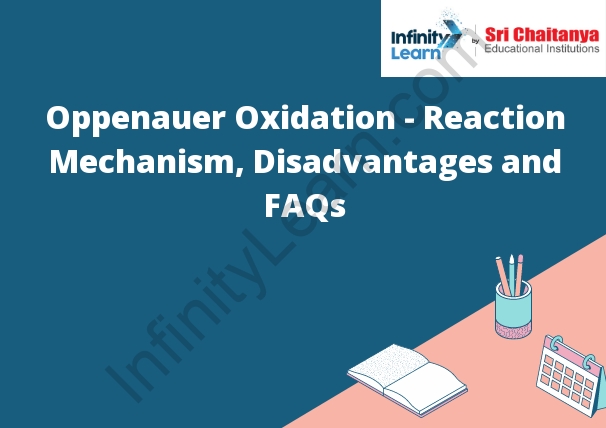Table of Contents
Understanding The Oppenauer Oxidation at its Base
Oppenauer Oxidation – Reaction Mechanism: The Oppenauer oxidation is a redox reaction that can be used to oxidize primary alcohols to aldehydes. The reaction is performed in the presence of a strong base, such as potassium tert-butoxide, and a platinum-based catalyst. Therefore the mechanism of the reaction involves the oxidation of the alcohol to an aldehyde by the base, followed by the formation of a platinum-alkoxide complex. The complex then undergoes a reductive elimination to form the product aldehyde and also platinum metal.

What is Oppenauer Oxidation?
Oppenauer oxidation is a chemical reaction that uses potassium permanganate (KMnO4) to oxidize alcohols to aldehydes and ketones. Therefore the reaction named after its inventor, Adolf Oppenauer. The reaction often used to determine the presence of alcohols in a sample.
Oppenauer Oxidation Reaction Mechanism
The Oppenauer oxidation reaction is an organic reaction in which a ketone oxidized to an aldehyde with the use of pyridinium chlorochromate (PCC) as the oxidizing agent. The reaction mechanism involves the formation of a chromium-carbon bond, which subsequently broken to release the chromium(VI) species that then oxidizes the ketone.
Advantages of oppenauer oxidation
The Oppenauer oxidation is a powerful method for oxidizing alcohols to aldehydes or ketones. The reaction performed in the presence of a catalytic amount of palladium on carbon. The reaction initiated by the addition of a hydrogen donor, such as sodium triacetoxyborohydride, to the alcohol. The palladium on carbon then catalyzes the oxidation of the alcohol to the aldehyde or ketone.
Disadvantages of Oppenauer Oxidation and its Mechanism
The main disadvantage of Oppenauer oxidation is that it is a slow process. This means that it takes a long time to produce the desired product, and it can be difficult to control the reaction. Additionally, the mechanism of Oppenauer oxidation not fully understood, which can make it difficult to optimize the reaction.






